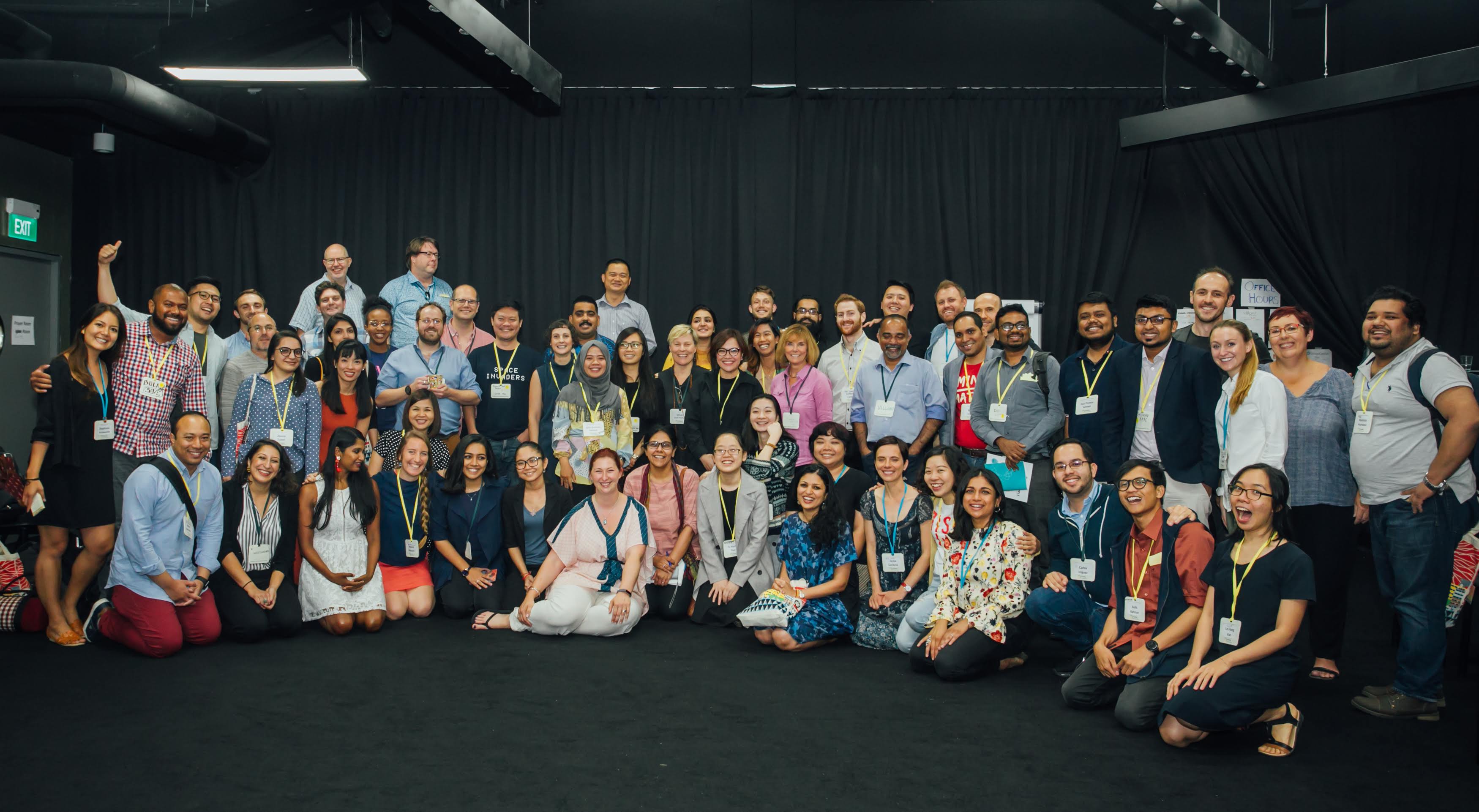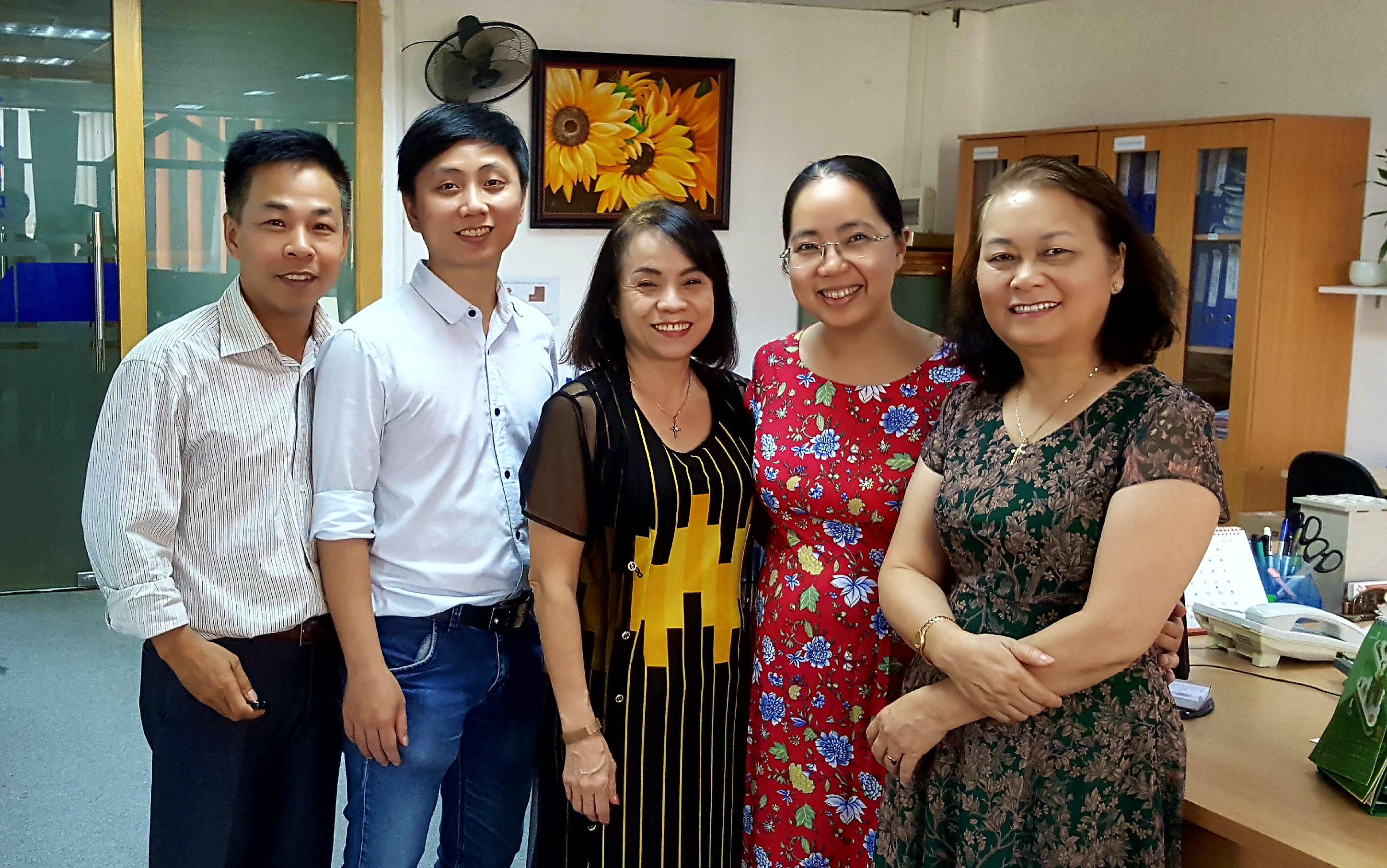Frontier Incubators: KisStartup Case Study
One of the values we pursue is "Constantly learning". That value makes us constantly ask questions, accept trial and accept false. These relentless efforts have been acknowledged by Frontier Incubators, an Australian Department of Foreign Affairs and Trade initiative to support social entrepreneurs to increase their impact in the Indian and Pacific region as they introduce us as the only case study in 31 organizations across the region to share our experiences in supporting startups and innovation projects as well as experience with the Frontier Incubators program. Our case study is honored to be introduced in the Guide to Impact Incubation and Acceleration - summarizing knowledge shared during Frontier Incubators including the workshop in Singapore and thematic programming, as well as insights from partners and cohorts.

PROBLEM WE ARE FACING
We needed to clarify our business model to focus on 2-3 products and services. Previously, we were working with different stakeholders in the startup ecosystem, such as universities, governmental agencies, corporates and startups, and were providing them with training, coaching, and mentoring. However, we were unsure of which strategy to take.
At the same time, we wanted to add more value to our startups by giving them the chance to access to angel investment. But we did not know how to start!
In Vietnam, angel investment is a new concept. People invest in the stock market and real estate, and normally look for quick returns on investment, which means they want to invest in profitable projects in a short time. Mentoring is also new to the market, so that efforts in building an angel investment network, so far, have not really been effective.
HOW WE ADDRESSED IT
We are working as a profit-based company and, as a result, we are not very experienced at applying for grants. Frontier Incubators (FI) is the first-ever program that we applied for because we saw it as our chance to learn.
When we joined FI, we spoke to every expert in the field that we had a chance to meet. We asked them questions and spoke to them about the challenges that we faced, our strengths, and our weaknesses.
We are well aware that we are small and new, so we won’t be able to do everything at once. What we can do, however, is connect people with an insightful and quality network. We work with different stakeholders in the startup ecosystem in both the public and private sectors. Through innovation and entrepreneurship training, we have been able to open up even more networks and more potential cooperation. We take firm actions rather than quick actions, and we test the market with a lean startup methodology. By moving quickly, we are able to make fast decisions, based on what we have learnt from reality.
OUR FRONTIER INCUBATORS EXPERIENCE
Thanks to FI, our team has learnt that a lean team can be even more effective. Our team has learnt to qualify the network that we make, build strong cooperation with partners and focus on our startups’ pain points in order to build value for them.
Thanks to FI’s experts and mentors from organisations like Fledge and Spring Activator, we have been carefully working, step by step, to clarifying our vision and mission. We are now defining action plans for developing corporate innovation activities and are also working to develop an angel network.
We really appreciate the opportunity to work directly with Spring in Hanoi, as we were able to work intensely on our vision, mission and values.
The Angel Accelerator thematic programming, run by Fledge, was great for us to better understand the market. Some content has even been translated into Vietnamese to help us gather our very first local angel investors, and educate the market. We treasure the mentorship we received as it has really helped us to shape the mindset of being prepared,, not being rushed, and doing careful market discovery.
In November 2019, a local fund of angel investors officially signed a cooperation agreement with KisStartup to fund projects in agritech and e-commerce. With our strengths in innovation and entrepreneurship capacity building, as well as our growing network, we will be a perfect match for the fund.

WHAT WE HAVE LEARNED
1. Invest in teams
Investing in our human resources is always the best ever strategy especially when incubators and/or accelerator activities are almost the same everywhere. What makes you different is how you deliver it. People make a great deal of difference, they are your value delivery channel above all.
2. Keep learning and asking
Support programs like FI will only ever contribute effectively to our growth, when we are aware of our problems and keep asking good questions. There are always good listeners who give you good questions to think about.
3. Decision making is tough, but it’s your task, not others.
No matter how many experts you meet or how much advice you are given, you and your team are the only ones who can decide how to move forward. Keep building hypothesis/MVP like a startup, measuring them as hard as you can with clear KPIs and data and learning as much from them as possible. In short, the Build- Measure-Learn loop from lean startup really works if you are serious in applying it.
4. Mentoring is important.
Mentors are important for startups and for intermediaries as well. Therefore, building a mentor network requires effort and patience, but it will bear fruit in the long run.
5. A coach team are essential
Coaches who can ask good technical questions are important. They are complementary to mentors in every incubator or accelerator.
6. Focus on what we can work best
“Bird in hand”- making best use and building everything from your strengths is the best strategy.
7. The startup is our customer
Do not forget we put them in the centre of every activity. Sometimes, for short term survival, we forget this and focus on something else. However, when we are clear and remind ourselves often, we find the meaning in whatever we do.
Source: https://toolkits.scalingfrontierinnovation.org/guide/introduction/